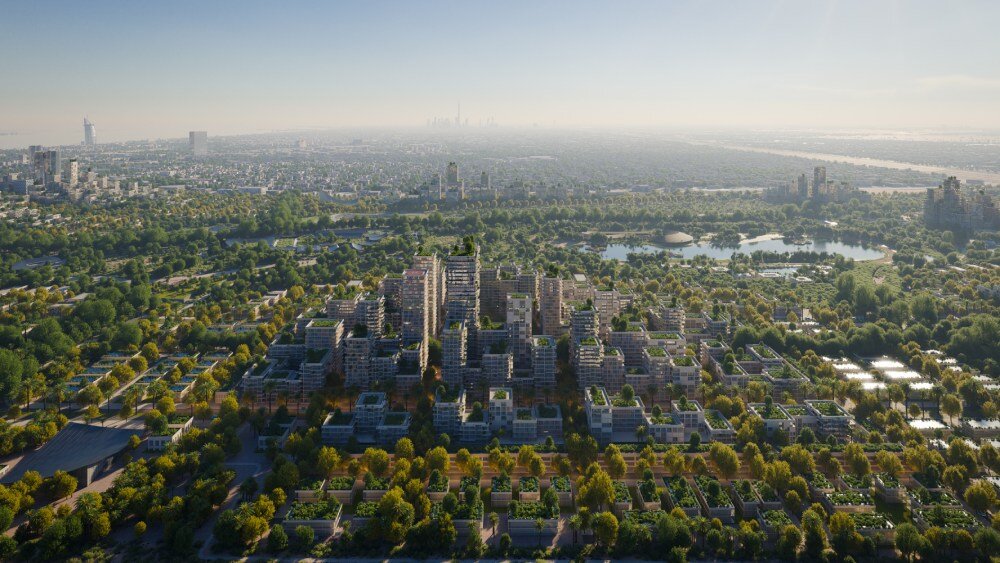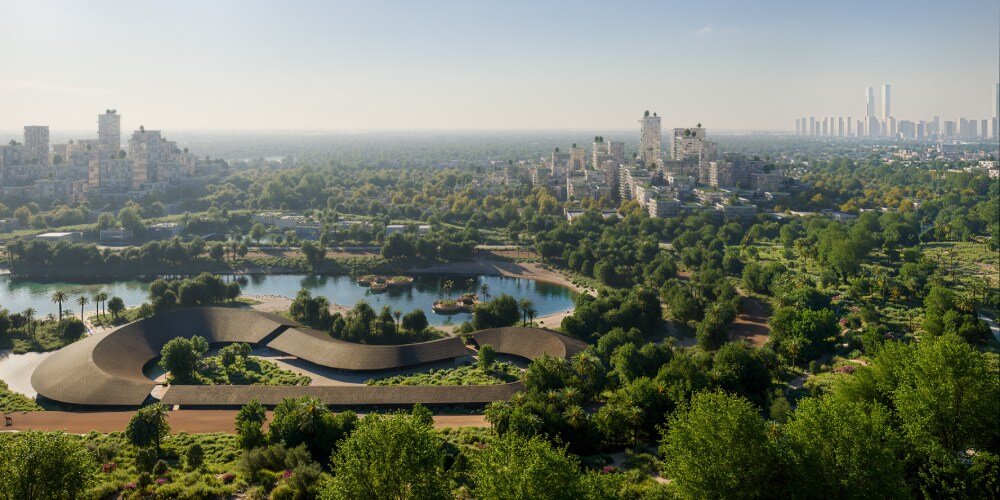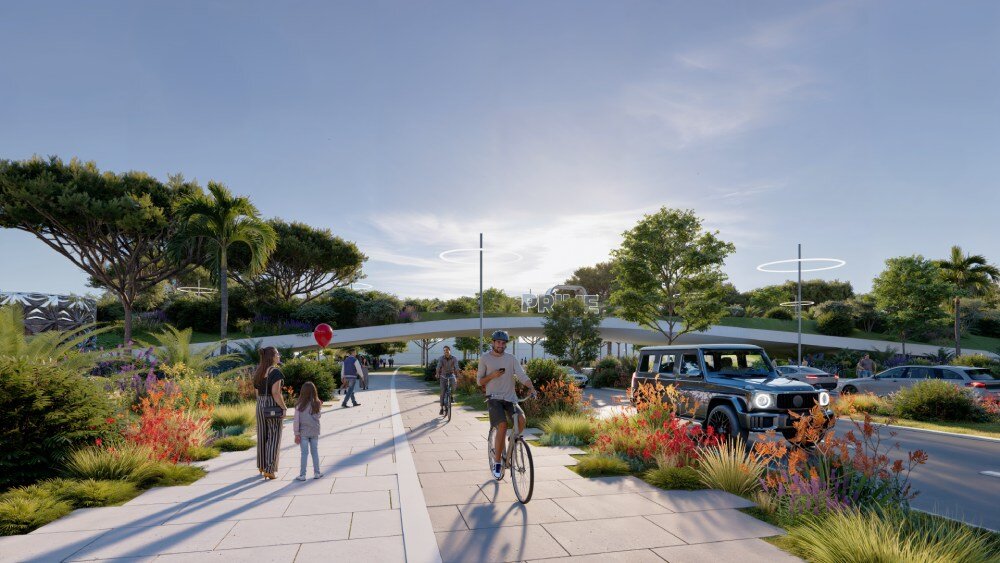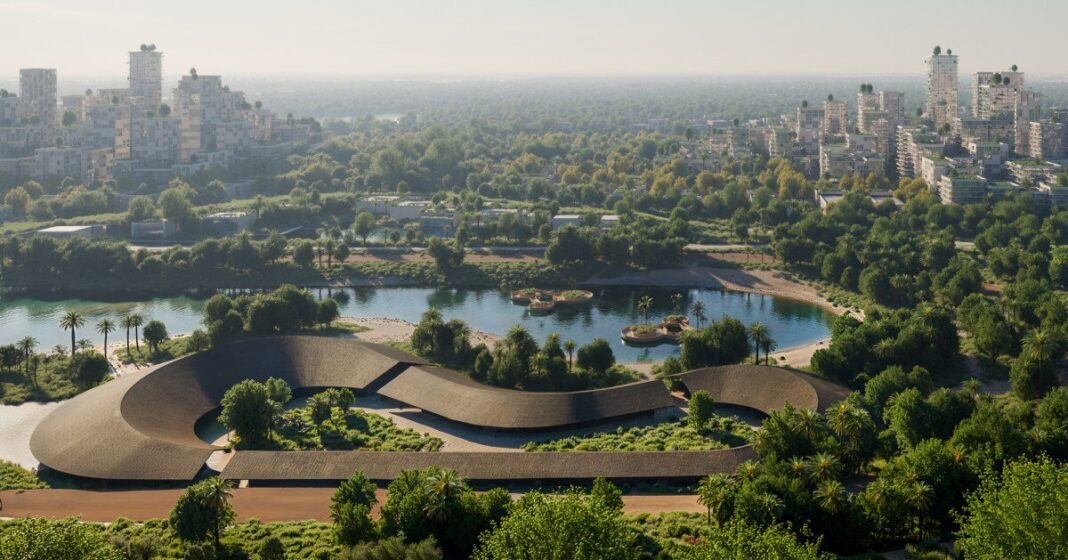jebel ali masterplan reimagines dubai’s historic racecourse
Dubai’s former racetracks in Jebel Ali are set to be transformed into a vibrant, walkable district with Bjarke Ingels Group’s (BIG) upcoming masterplan. The scheme proposes an urban framework that foregrounds landscape, public space, and social infrastructure, aligned with the city’s ambitions for more sustainable growth as road mapped in the broader Dubai 2040 Urban Master Plan.
The approach centers on improving resident well-being by distributing urban density and weaving built forms and open, green spaces together across five square kilometers. A large central park sits at the center, maintaining the spatial memory of the racecourse, with a series of mixed-use neighborhoods organized around it. With nature weaving through them, and with all amenities accessible by just a five-minute minute walk, the configuration is reminiscent of an ‘archipelago of urban islands in a sea of green’, as architect Bjarke Ingels notes. Development is set to begin in 2026.
all images courtesy of Bjarke Ingels Group (BIG)
bjarke ingels group (big) creates human-centric scheme
Stemming from national priorities and embodying ideas of holistic prosperity, BIG envisions the masterplan as a ‘living landscape of interconnected communities’. Consideration of physical, emotional, social, and environmental dimensions foster this sense of connectivity across the various island-like pockets which all seamlessly lead into one another before converging around the central park. ‘The park doesn’t stop at the center,’ says Bjarke Ingels. ‘It bleeds between the islands, weaving nature through the urban fabric.’
To enhance this sense of well-being, the architects also place an emphasis on walkability, accessibility, and the integration of local SMEs in what the developers refer to as a ‘city-as-gym’ concept. To improve public health outcomes, all residents can reach green spaces, amenities, workspaces, and social services by just a five minute walk. Sustainability strategies are also prominent, with the integration of passive cooling and urban farms, while equestrian facilities nod to the site’s heritage.

Dubai’s former racetracks in Jebel Ali are set to be transformed into a vibrant district
fostering social, economic, and environmental sustainability
Commissioned by A.R.M. Holding, the Jebel Ali Masterplan has been framed as an effort to balance global architectural expertise with local cultural and social priorities. H.E. Mohammad Saeed Al Shehhi, the company’s CEO, underscores the importance of embedding Emirati identity within the development, positioning the project as part of a broader effort to rethink the relationship between heritage and urban expansion in Dubai. ‘This masterplan will serve as a bridge fostering communication, understanding, and principles of empathy that are central to our vision of enabling prosperity,’ he says.

the masterplan weaves built forms and open, green spaces together across five square kilometers

Bjarke Ingels Group’s (BIG) masterplan takes a human-centric approach

